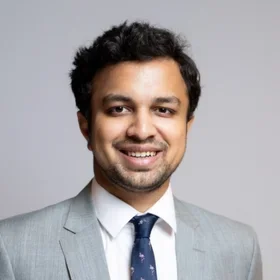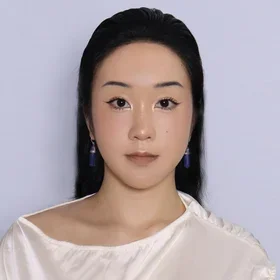Delgado is the founder of BINOMIA, a management consulting firm in Peru. As an international student, she earned a bachelor’s degree in Hospitality Management at St. Ignatius Loyola University. Prior to joining Columbia University’s Negotiation and Conflict Resolution (NECR) program, she worked in the hotel industry. Delgado believes that conflict resolution, and her academic experience at Columbia, has shaped her career path, as well as changed her way of processing information.
What made Columbia the right choice for you? Why did you choose to join this program?
There were a handful of reasons. The most relevant for me is that I had discovered that I was really interested in corporate conflict. I had been leading a customer satisfaction department for a Peruvian hotel chain for a few years at the time, and I found fascinating how cultural differences influenced the guest and employee experience and how the right actions could really improve their experience in Peru. That is why I started looking for programs, and NECR stood out. It wasn't just focused on social conflict, like most of the other programs I had seen. Also, it was really appealing for me to be able to study at Columbia and to experience living in NYC. That made the decision to apply for the program much easier.
What was the Columbia experience like for you as an international student?
It was an amazing experience. I was living abroad for the first time, and I truly believe NYC is the best place for that kind of experience. At Columbia, I could always find different activities and suggestions about what to do and that definitely shaped my experience there. The culture, gastronomy, outdoor activities and the lively vibe are truly inspiring. As an international student, and English not being my native language, I struggled a bit during the first semester. I found great resources at school, and all the people I turned to were genuinely helpful.
Also, as part of the program, I was able to meet professionals from different backgrounds, with whom I keep in touch up to the present. It has been great to witness the different career paths everyone has taken. It still amazes me how tight the Columbia umbrella is. Every time I have reached out to someone from school (even if I didn’t know them) I have always received a kind response. I do the same.
Tell us about your career and your current role.
I hold a bachelor’s degree in Hospitality Management. Prior to grad school, I had worked at the hotel industry. Since I returned from NYC I knew that I didn't want a full-time job for a company anymore. I became a consultant and the program definitely provided me with skills to improve in Client Relations, but it also opened different opportunities for me, like working in conservation projects at the Amazon Rainforest, where indigenous communities had been wronged for decades.
During the pandemic, Peru was one of the world’s worst-hit COVID-19 country. I saw an opportunity because small and medium-sized companies were practically forced to offer their services online and to adapt to the many regulations that were established. I realized that many of these companies where good at what they did but not at cultivating long-lasting relationships with their customers. And, if they needed advice, there weren’t many affordable choices they could turn to for assistance. That was the first idea for BINOMIA. I was able to create a consultancy business specifically aimed at this niche, working with other consultants that had skills that complemented mine, for example, a neuropsychologist specialized in stress management.
You recently joined us for an informative Career Deep Dive panel. You mentioned that Binomia’s biggest challenge is supporting best-in-class customer service. How do you go about achieving that? Are you applying what you learned in the program to achieve this?
What I learned in the program has definitely shaped my career path. I was able to understand the theory and frameworks behind what I had been doing by experience. Even a few years after graduating from NECR, I constantly realize I learned more than I initially thought. It has definitely changed the way I process information and my own emotions. In Peru, we deal with this preconception that, since we are generally nice people, we don’t need to invest in customer service. The result is that, when things go south, no one takes the opportunity to turn this negative experience into an opportunity for growth. My purpose with BINOMIA is to provide small companies with skills to increase revenue through customer loyalty. And conflict resolution is at the core. I want to change the Peruvian view that conflict is a word with negative connotation. As I learned in the program, conflict is everywhere, even within us, and we can grow from learning where it comes from.
These months have been really interesting because, through some activities, I have become aware of many biases people in Latin America have. For example, I have received several comments from people in the service industry who believe that clients are inherently mean and trying to take advantage of the service representatives. This idea not only keeps them from enjoying work, but they would also attribute any action to that bias. That makes me more certain of the work ahead. Companies need to invest in their employees so they are able to navigate conflict, accept feedback, even the positive one. In my culture, we—especially women—are not very comfortable with accepting positive feedback, and this is detrimental to the customer experience because it cuts an interaction short. What I value the most is the potential to not only improve the way people at the customer service industry work but how they can apply all these concepts to their personal lives.
Could you please share a few conflict resolution skills you learned from the program that you think are essential for forging successful relationships between stakeholders and organizations?
Probably the most important one has been the opportunity to change my mindset. I used to think that, if I was right, for example, at work, I needed to show my client that he was wrong. Throughout the program, I learned that we view the world based on our past experiences and there are many different ways people can interpret one situation. This skill has opened my view, has helped me look for win-win situations and definitely has made me a better listener, which is a very important skill for conflict resolution and negotiation.
Also, I have improved my communication skills. I have learned, for example, to separate the people from the problem, providing me opportunities to agree in disagreeing in a respectful way. That is so important given the current situation we are living in. The pandemic has brought a not-so-friendly reminder of the importance of taking care of our mental health.
What advice would you give to students who are similarly interested in entrepreneurship?
My best advice is that you have to be willing to navigate uncertainty and discomfort. There are many aspects people don’t tell you, like the fact that being your own boss means you may be working 24/7 at first, or that time management is vital, if not, you will fall into burnout sooner than later. Besides that, I have found fulfilling the opportunity to meet and work with other entrepreneurs and small companies. I am being able to learn from different fields, and it’s been a little over six months that BINOMIA was launched, but I can already see how much we have grown (both BINOMIA and me).
Entrepreneurship constantly pushes me out of my comfort zone. I tend to shy away from social media or being in the spotlight, but I have realized that if I have a purpose, and I want to share it with the world, I have to be out there. I can’t say I am completely comfortable with it right now but, looking back, I can see my progress.
So, if you are willing to grow, ask for help when you need to, own your mistakes and even knowing when to quit and start over, maybe this could be a good choice for you. And, finally, there is not a written path or a formula that works for everyone. Recently, a student from the SPS reached out to me because she saw the email about the Career Deep Dive panel. She mentioned that she had been told that to work in Consultancy she had to spend quite a few years at the bigger ones in the business and she didn’t feel it was a good fit for her. We had a very interesting conversation, and I had no idea that someone from literally the other side of the world could feel inspired by my choices. For that, I am truly humbled.


